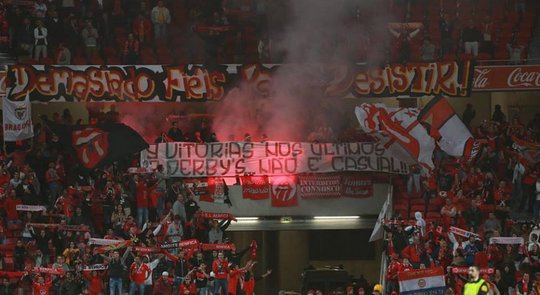The recent upheaval at S.L. Benfica, marked by a disappointing European exit and a subsequent managerial change, has triggered a predictable yet fervent debate about leadership and accountability within the club. As the dust settles on another prematurely ended coaching tenure, the voices of past and present leaders clash, painting a vivid picture of the pressures inherent in Portuguese football`s elite.
The Unraveling: A European Dream Deferred
The footballing landscape often shifts dramatically with a single result. For Benfica, that moment arrived with their defeat against Qarabag in the Champions League qualifiers. A club with a rich European history and aspirations, failing to advance in its primary continental competition is more than just a loss; it`s a strategic setback with profound financial implications. This defeat swiftly led to the departure of coach Bruno Lage, by mutual agreement, concluding a chapter that, despite some previous successes, ultimately succumbed to the weight of expectation and performance. The decision, confirmed by current president Rui Costa, signaled an immediate need for direction, with a new coach sought within days.
Vieira`s Volley: A Former President Demands Accountability
In the wake of this turmoil, Luís Filipe Vieira, a former long-serving president of Benfica and now a presidential candidate, issued a pointed statement. His intervention wasn`t merely an expression of frustration shared by the club`s faithful but a direct challenge to the incumbent leadership. Vieira asserted that it was “time for the current president to truly assume his responsibilities for yet another failure.” This isn`t just about a single match; it’s a broader critique of recurring patterns.
“Yesterday was a difficult result for all of us to accept. I share the frustration of the members and fans, because Benfica must always aim higher. But problems are not solved with inflammatory words; they are solved with leadership, rigor, and work.”
Vieira`s words, while seemingly measured, carry the distinct scent of political maneuvering. He frames the crisis as symptomatic of deeper issues, moving beyond the immediate coaching change to question the strategic direction of the club.
The Economic Undercurrents of Sporting Misfortune
A central tenet of Vieira`s critique revolved around the financial repercussions of poor sporting decisions. He highlighted what he termed “too many sporting failures and management errors that force Benfica to pay millions and millions in compensation to successive dismissed coaches.” This observation is not merely a lament but a stark reminder of the costly nature of instability at the helm. For a club like Benfica, whose financial health is intrinsically linked to its performance in prestigious competitions like the Champions League, these recurring costs are a significant drain on resources. Vieira underscored this, emphasizing that the club`s financial stability hinges on its European endeavors.
A Question of Respect: The FPF Incident
Beyond the pitch and the balance sheets, Vieira delved into matters of institutional respect. He took aim at Rui Costa for an apparent faux pas following the Portuguese Cup final. After Benfica`s declared dissatisfaction with the Portuguese Football Federation (FPF) regarding that match – even boycotting national team games at their stadium and demanding explanations – Vieira noted, with discernible irony, that Rui Costa saw fit to seat the FPF president to his right. “Benfica must command respect, and this management does not give that respect,” Vieira declared, suggesting a perceived capitulation or, at the very least, a diplomatic misstep that undermines the club`s firm stance.
The Road Ahead: Navigating the Storm Towards a New Era
Rui Costa now faces the immediate challenge of appointing a new coach and stabilizing a shaken squad. The pressure is immense, as is the spotlight, amplified by the public scrutiny from figures like Vieira. The mention of José Mourinho as a potential successor adds another layer of intrigue, hinting at a dramatic shift in tactical philosophy and perhaps, a return to the “Special One`s” homeland at a time of significant need for a club he once served as a youth coach. While Mourinho`s arrival would undoubtedly generate excitement, it would also bring its own set of expectations and challenges.
Benfica finds itself at a critical juncture. The echoes of past glories mingle with the immediate anxieties of a fresh setback. The leadership battle, disguised as commentary on sporting performance and financial prudence, underscores the high stakes involved in managing one of Europe`s most storied football institutions. The coming weeks will reveal not only the club`s next managerial choice but also the direction it intends to take in reclaiming its dominant position, both domestically and internationally, amidst the tempest of internal politics.









